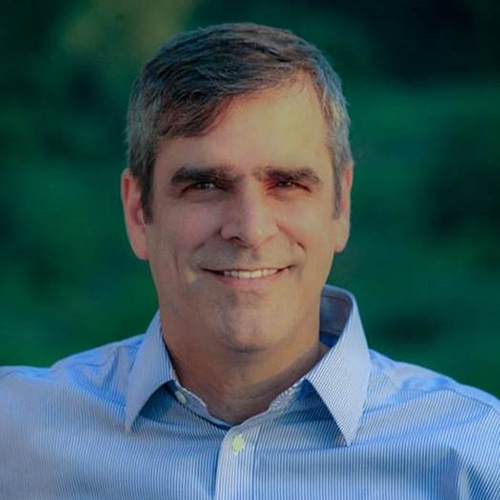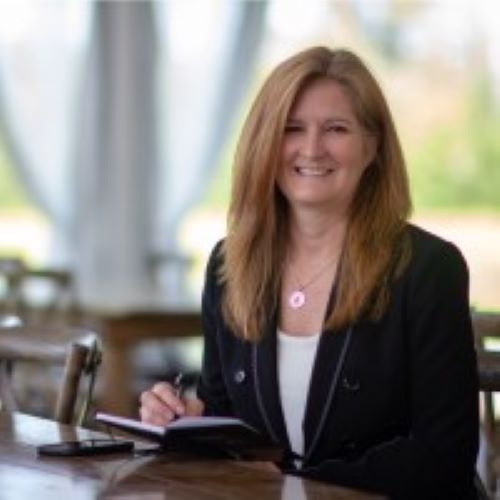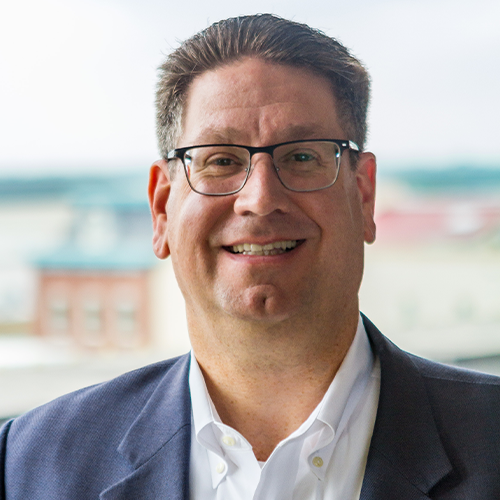Nick Calderazzo
Episode 92: Getting on Board for Group Travel, with Nick Calderazzo
The field of travel and tourism is ever changing. Adaptation and collaboration are a part of the territory to stay relevant and to stay in business.
Group touring has been a segment of the industry where adaptation has been especially necessary. Finding new alliances, experimenting and learning from both successes and flops – it’s all part of the job. On this episode, Nicole speaks with guest Nick Calderazzo about all of these dynamics and more.
Nick has been working in the hospitality industry all his adult life, 18 years in hotels in New York City, and 18 years as a Receptive Tour Operator in New York City, and now eight years as the President of Twin Travel Concepts, a tour operator in the Hudson Valley of New York State.
Nick is currently President of Travel Alliance Partners and has been a TAP partner for six years. Travel Alliance Partners is a North American Corporation, who in 2001, emerged as a dominant leader in the travel industry, and is currently in their 17th year of business. Additionally, Nick serves on the New York State Tourism Industry Association Board, has served five years on the NTA board, and has a prestigious appointment to the Travel and Tourism Advisory board.
More on Nick’s Background
Thank you for joining me, Nick.
Thank you for having me, and an honor to be here.
I am really excited about the conversation. I know you have a very busy schedule, so I really appreciate you carving some time out to talk with us and our listeners.
But before we get started, can you share a little bit more about your background and your story in your own words? I find that that offers so much more context to our conversation.
Sure. I actually went to college as a math major. I went to Stony Brook University, and I was really good at math. Loved numbers, still, do. I love word problems and all that, but it wasn’t working for me. It’s not what I wanted. I looked at my professors, and I knew it wasn’t what I wanted to do with my life. I had no idea.
So I took a bus to visit my sister in Colorado and stayed there working in a hotel. The Harvest House hotel in Boulder, Colorado, in 1977 or ’78. And that’s what I did for a long time.
I love the hotel industry. It was like theater, in a sense. I loved the front of the house, the back of the house. But really, I just love being with people, working with people, helping people, and creating things for people. So that’s service. My passion was service, and I did that for 18 years.
I started as a busboy, waiter, a bellman, doorman, telephone operator, front desk clerk. And then, eventually, convention services, convention sales. I loved the hotel industry, but in New York City, I started to get burnt out of it. And I was at the World Trade Center in 1993 at the Vista Hotel when there was a bomb at the World Trade Center, and I didn’t want to stay there anymore.
And I got a call from someone, a friend, who said his sister was looking for somebody. And he tried to describe what a Receptive Operator was, and it didn’t make any sense. I said that’s nothing I know how to do, but I went on the interview anyway, and I fell in love with tour and travel. I remember my first trade show, meeting all the tour operators as I was doing the selling and saying I love this. I was home. I knew I was home when I was with the tour operators. That was where I was meant to be.
It’s not an industry I knew about. It’s not an industry anyone I knew, knew about. And yet, I was home here, and that’s what I’ve done ever since, and I’m thrilled that I can keep doing what I want to do. I don’t plan to retire any time soon.
I’ve been going to ABA and NTA for 25 years, and I still don’t feel like an old-timer. I think that’s great. That tells you a lot about this industry.
It certainly does. I think that’s so cool. First of all, I didn’t know you were a math major. I think it’s interesting where the journey takes you. You got that first job in hospitality at a hotel in Colorado, and that leads you to other jobs. That’s how you end up really understanding the hospitality industry from the inside out, it sounds like, working in so many different facets of the hotel business.
And then, to move into being a Receptive Operator and not knowing even what that meant at first, but then feeling like you’re at home with the tour operators. I just think that’s such a cool story, and so unique to our industry. I find a lot of our guests don’t necessarily set out to be in travel and tourism, or tour and travel, but end up there. It’s almost like it calls you, somehow. Right?
Well, literally, yes, and then I’ve grown from there too. So I did the receptive for 18 years, but we went through 9/11. We went through the war in Iraq because we were doing some international inbound, which really hurt us. The crash in 2008. And I kept thinking we have to diversify, diversify.
So when I moved up here into the Hudson Valley, eight years ago, full-time, and opened up this company, I wanted to diversify. I didn’t want to be just one area because the world and the industry is changing so drastically, and so quickly. It’s hard to adjust.
So now, we offer our services everywhere, and we’ve really grown that side of our business so we’re not niched into one area. And I think that’s an important thing, and I love it that much more because there’s a new challenge every day.
I think that’s a really important point too because things are changing, and they change rapidly. There’s always been change, but it seems like everything is speeding up a little bit, with technology and access; access to not only technology and information, but choices in travel and everything else. And to be able to keep up with all of that, and diversify, and find your passion there, I think is really awesome.
Tastes among travelers are changing more quickly too. Trying to understand what’s going to sell, I think is even harder now than it used to be because of those changing tastes, endless choice and access to information. So somebody starts writing an article about a certain area and a couple articles come out, and now everybody wants to go over there. And if you’re not on top of that, you’ve missed out.
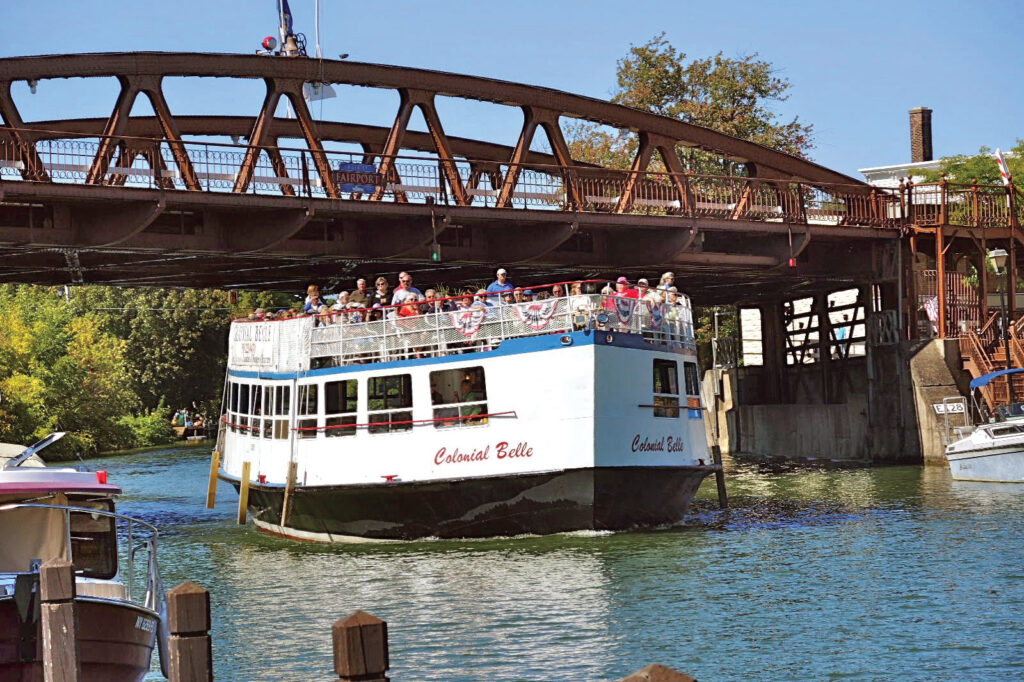
[bctt tweet=”“Tastes among travelers are changing more quickly too. Trying to understand what’s going to sell, I think is even harder now than it used to be because of those changing tastes, endless choice and access to information.” – Nick Calderazzo #podcast”]
How to Stand Out From the Crowd
That’s a really good point as well, and a perfect segue into this first section, what we like to focus on in this show, which is creativity. Because I imagine being able to be flexible like that and to keep your finger on where those changes and desires for the travelers are going, you really need to be creative. Especially with the competitive nature of the industry and all of those choices of all the destinations that travelers have to choose from.
So I’m wondering, Nick, if you can share with us what you have done with Twin Travel Concepts to stand out from the crowd?
Well, that’s actually hard to do. What we focus on is service. We customize our programs to our clients’ needs, and tastes, and budgets, and we respond. We make it clear we’re going to do whatever we can to make you satisfied. Hopefully, thrilled. And we accept nothing less. We want to be a trusted partner.
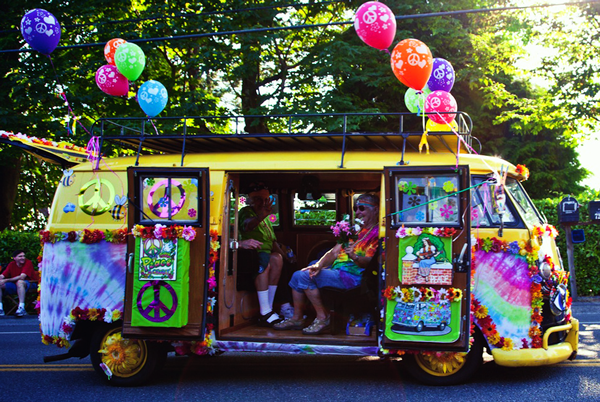
[bctt tweet=”“We customize our programs to our clients’ needs. We make it clear we’re going to do whatever we can to make you satisfied. Hopefully, thrilled. And we accept nothing less. We want to be a trusted partner.” – Nick Calderazzo #podcast”]
So between the service and letting our clients know we are partners with them in this. This isn’t a commodity. This is more than a commodity. We are going to work with you to create what you need. Don’t hesitate to say something is not working. We will fix it. In this day and age, that’s a standout as opposed to online, clicking column A, clicking column B, and this is what you get.
I think that’s such a good point in that you really have really focused on that. You’re not just serving up a commodity because you’re right, if they can go online and click here and click there, then they don’t need Twin Travel Concepts. But it’s this whole other level of service that you bring to the table and knowledge that they’re really tapping into.
How do you communicate that to your clients? Do you find that there’s a lot of word-of-mouth so that your clients understand that’s what they’re getting? How do they know that? Yeah.
It’s word-of-mouth. It’s calling them on the phone. Good old-fashioned pick up the phone and calling them, or if I can even get into their office to let them know that. It’s answering their emails immediately, and letting them know in the email we’re going to work together, and it’s going to be customized just for you. We want their input.
We’ve grown quite a lot over the eight years I’ve been doing this, but it’s been slow steady growth. Getting the word out there is tough in this day and age. How do you stand out on social media, when everyone else is bombarding you?
So it’s just working it. It’s not setting your sights too big and trying to throw the big net and grab everyone. It’s more taking slow, being much more judicious about who you go after, how you’re going after them, giving them a call, and being consistent as well.
Absolutely. So I’m curious. Earlier in our conversation, you were talking about how the tastes of the traveler are changing, and how it’s really challenging to know what they’re going to be interested in, or what will actually sell. A number of listeners are probably suppliers that either you work with or would like to work with you.
So, I’m wondering if you can give us a little bit of insight into the kinds of things that you’re seeing, or what those suppliers could be thinking about that could really help you stand out.
Well, probably they’ve all heard this, but unique experiences. I mean that’s almost cliché, at this point. We’ve been talking about that for years, and we’re trying to go for that. But really, travelers today want an experience. So when we put together a program, they may have similar experiences, but the programs are more focused now.

[bctt tweet=”“Travelers today want an experience.” – Nick Calderazzo #podcast”]
So it’s much more focused. Instead of trying to focus on everything in your area, we’re going to narrow it down. The focus is much narrower on these programs. We still want the experience, but the travelers are in some ways much more similar. We don’t have the broad variety because we’re not selling retail.
So if we’re getting a senior center, whether it’s a faith-based group, I’ve got a Presidential Library. I’ve got a dance school. We’ve got all these different types of groups, and their focus is narrow. So the program has to be more narrowly defined. I can’t sell the same program to every group, and I can’t give a huge variety of things where some people might like this, some people might like that. If I’m going to have that type of group, then I’ve got to give them time on their own so they can go explore separately. But more of the groups now are much more affinity-based, so they’re more similar in what they do and what they want to see.
That’s great insight. And I want to make sure that the listeners picked up on that, especially that last piece that in thinking about the group traveler, that what you’re saying is you’re seeing more are these affinity groups, which are very much more focused and similar in interests. So they’re more narrowly focused on the experience, rather than going into an area and experiencing everything the area has. They are looking for a very specific theme experience.
And then, I love how you said if it is a more diverse group, like more of a generalist type of group, how you need to build in that time on their own so that they can then get their own interests met as well as part of the itinerary.
Well, yeah. We’re working with many more downtown hotels, and giving them a day on their own or half a day on their own because who’s traveling now? The seniors are more Baby Boomers now. Baby Boomers have been traveling their whole lives. So they can go on the internet and find an Airbnb and go anywhere they want. So if they’re going to go on a trip because of this narrow focus, they’re still going to want to do some things on their own. Some of them will go to a museum. Some of them will go to a game, or whatever. So we have to give them that flexibility.
They don’t necessarily want all the meals included. They can go to dinner on their own. If you’re in a downtown location and they can walk to dinners, why would I give them dinner? Here, go out. We do that in a lot of places now, or I bring them downtown. Even if I’m staying out of town, we bring them downtown and leave them and say, here, you’re on your own tonight, and they’re very happy with that. They don’t really all want to eat with one another all the time.
Flexibility in the itinerary is big. And it’s not always group dinners and not all group activities, which I think is important for suppliers to understand. I think what that then means is when it comes to working with someone like you that you won’t get everyone in the tour – the typical 48, 50-person bus – all coming in all at once. So as a supplier, you have to understand that these groups might be smaller. You might get a fraction of the group, but you’re still going to be getting that business if you’re part of these itineraries.
Well, and there’s an advantage to smaller groups. You can do more hands-on things. There are these small restaurants and museums, and places that really can only take 20 people at the most. We might offer a cooking class or several different experiences. So we find that sometimes with the smaller groups, we can do more fun things.
Yeah, that’s a good point. Absolutely.
Well, thank you very much for sharing that information with us. It’s important for our listeners to hear.
I want to shift gears just slightly. I like to when we’re talking about creativity to have our guests share some sort of a challenge or adversity that they may have faced. Because I find that the creativity that comes from that challenge or adversity, we always learn so much from it. And so, I’m wondering if there is a challenge that you had faced and if you could share that with us, and maybe the creative solution that came from it?
Yeah, yeah. You know what I was thinking of because it came up today: social media.
LivingSocial contacted us to do some tours for them. And they do a lot of that touring at the last minute, and we couldn’t. It’s hard to create a group tour for last-minute.
So we struggled, but we put together a tour for New York City, and I had to go out to all the suppliers and really tighten the screws a little bit and say, “look, just for this once, give me a two-week or 10-day cutoff. And I’m sorry, no cancellation, no deposit, tw0-week or 10-day.” You know that doesn’t go well, especially in New York City. But because of our relationships, we were able to do that. The group didn’t sell well, but I found that because we have great relationships and because everybody really does want to try new things, it worked in that sense. It worked in that I found a template of how we might be able to move forward with the challenge of these last-minute bookings.
We have people calling at the last minute. We tell people we want to make the decision 10 days out. How do we as an industry adjust to that? Hotels want to know certainly a month out. I’ve got hotels wanting me to be liable the moment I sign the contract, eight months out, which I can’t do. And I get it. I get why everybody wants this, but how do we create a program where I can have a 10-day cutoff? Well, that’s partnership, and that takes creative thinking on both of our parts of what can be done. What kind of program can we create with that?
I think that’s a great example. Because LivingSocial is just one of those resources, where people book last minute. I mean look at what TripAdvisor is doing with their TripAdvisor Experiences. People are looking for those packages or those group experiences, and they are looking for these at the last-minute, closer to when they’re actually going to a destination. I think that was a great example. I love how you said that particular relationship with LivingSocial, that particular package didn’t actually work out or go very well, but that you did learn from it.
So you’re starting to think about how this industry can respond to these last-minute bookings, and you got your supplier partners to start thinking about that. I think that’s really what it takes for you to stay ahead of the curve; to be constantly experimenting and trying to figure out what you can do, and how you can make it work.
Exactly, and that’s what I’m always doing. What’s next? What can I do next? Because you sit here terrified when you start seeing all the changes, and the changes in pace. Something that was selling, all of a sudden isn’t, and something that you didn’t think was going to sell, sells. That’s great, but clearly, then I don’t have my finger on the pulse of what’s working if I can’t tell what’s going to sell. So now, I’ve got to try everything.
Yeah, interesting. So looking into the future, Nick, is there something, a project that you’re really excited about that you’d like to share with our listeners?
We have a couple of things we’re working on. One, we just opened up an office in Ohio. We call it the Heartland Division, and that’s been about six months, not quite, and it’s really starting to pick up. It’s doing well. So I’m working on expanding in that area with the group leaders in that area, but also do more tourism in that area. Travelers are always looking for something new, and I think there’s a lot untapped in the Heartland area. So I’m excited about the programs we’re creating for that.
We have our spiritual exploration tours division, which has not taken off really because I have not been able to put my efforts to it. I just hired somebody to help, so I can really start to get that off the ground. I’m very excited about it. I mean talk about something new in the future. It will be very different for us, but these are tours where we go to a location and explore a variety of spiritual traditions.
We go to a Buddhist temple. We go to a Hindu temple. So we learn about a variety of spiritual traditions in one location. We have programs in New York City, Virginia Beach, and Quebec. The idea is that it’s really tapping into what a lot of Baby Boomers are looking for. And again, it’s looking forward; what are people looking for? This is something I think will sell. People say we did one and it worked out well, but the marketing is very different from what we do now.
But we’re always looking for something new like that for the new travelers. What do the Baby Boomers and Millennials want in their travels? They’re not looking for standard sightseeing, necessarily. They can, again, buy a tour with Airbnb. They don’t need me for that. What do they need me for? What expertise do I have? And for those on the call, what expertise do we have that people need us for?
Well, those are two very exciting projects that you have, so we’ll look forward to hearing more about those in the coming months, for sure.
Co-opetition: How to Make a Partnership Work
I’m a huge believer in collaboration and what I like to call co-opetition, where perceived competitors actually come together to create something bigger than they can on their own. And I know just by the very nature of the work that you do and the work in travel and tourism, we see this everywhere. This whole idea of co-opetition.
But I’m wondering if you can describe a collaboration between competitors that has worked for you?
I’m President of TAP, Travel Alliance Partners. There’s nothing more collaborative than that. TAP started, well now it’s over 16 years. We just had our 16th birthday, so we’re in our 17th year and it started with exactly that. The founders got some tour operators together in a room at NTA and said, “we’re not getting enough people on our tours. I’m getting 15, you’re getting 15. How about I sell some of my people onto your tours, and you sell your people onto my tours?” And that began Travel Alliance Partners, TAP, and it slowly has grown from there. TAP is 30 North American tour operators, buying and selling from one another, marketing together. Instead of seeing each other as competition, we see one another as having the potential for creating more business. And you see that across this industry. I’ve got to say this industry is pretty good with that. You see that in NTA, or ABA.
You see people working together, but this is on a larger scale, and it’s been great. It’s expanded our business. I said when I moved up here, I wanted to expand out of just being New York City or Northeast centric. We now go all over the country, all over Canada, and I even have a couple groups in Europe, and this is because of TAP. TAP has given me that ability to grow my business, and the confidence to grow because I have these partners.
Yeah. I think TAP is definitely the epitome of exactly what you think of when you talk about collaboration and this whole idea of co-opetition. It’s interesting to hear you talk about it, and of course, you have firsthand experience in terms of how it has expanded and grown your own business and given you greater confidence. Can you expand on that, as to how does TAP really give you that confidence? I know you were talking about buying and selling from each other, but there’s a lot more to it than just that, isn’t there?
Here, we’re partners, so I now have a group going up to Newfoundland. I would probably have just gone to NTA each year. I would never have created this package to go to Newfoundland, but I know Richard well and he’s one of our partners. And I was at a TAP event and Jeanette from Newfoundland was there, and we just started talking. There’s a new show on Broadway, Come From Away, about Newfoundland and it’s fantastic. It’s the most incredible show. Anybody out there who hasn’t seen it, go see Come From Away. You’re gonna love it.
So we created this Come From Away package. I have a group going there, and now I’m going down to the Theater District in a couple weeks and I’m going sell. I’m working with some of the theater agents doing a guaranteed departure. That’s one of the things that TAP has – guaranteed departures. When there’s a guaranteed departure, even if one person signs up for it, it’s going. It’s guaranteed, which is a unique product to us. We were the first to have that.
So it’s just giving you the confidence to go out and sell these other areas that I would not have had any confidence to go out and sell. Because I have these partners that are in these locations that are specialists, and I know they’re going to take good care of me.
That’s such a good point. You can only know so many parts of the country intimately enough to put these focused itineraries together. So I think that’s a great example of how you can take what you know and expand on it through these partnerships, right?
Well, right. And it’s also given my clients confidence because they know that I have this partnership, and I have this network.
I think the same thing with being an NTA member and an ABA member as well. It gives my clients the confidence to say he’s well connected. He knows what he’s doing. He’s got people in places that are going to take care of us.
That is a great example of how a partnership can work. I’m wondering if you can give our listeners some advice on how to work in a successful partnership. Are there some best practices or some things that you advise when someone is thinking about entering into any kind of partnership? Of course, it doesn’t need to be as defined as say a Travel Alliance Partners, but if they’re looking at partnering, do you have some advice on how to make sure it’s successful?
Well, certainly clear, shared goals that you’re both going to achieve, and an awareness that it might not work. If we’re always trying new things, we have to accept that some of them don’t work. We try new programs. We’ve tried new things that haven’t worked. That’s fine. Like I said with LivingSocial, I learned a lot. We learned a lot about that.
So I think it’s important in any partnership to say, “okay, we’re going through this together, but at some point, it might not work or it might have to end.” Clearly communicating what the partnership is, maybe if a timeline has to be put down; communication is an important part of it.

[bctt tweet=”“Clearly communicating what the partnership is, maybe if a timeline has to be put down; communication is an important part of it.” – Nick Calderazzo #podcast #WhyCollaborate”]
But the shared goals is very important because sometimes if one person wants one thing and another person wants another. Then, they go into it together, and it’s not a shared goal at all. It’s they’re both looking for different things it isn’t going to work.
Great points. Being clear about your goals, and then communicating. So not only having clear communication about the partnership, but also communicating those goals, and the communication is an important part of it.
Right.
And then, I love that you said accept upfront that some things just don’t work out, and maybe discuss that upfront so that you know this might not work, but we’re okay with that, right? Because we know we’ll get something out of it.
Right. I see with some industries or some places where they go in with huge expectations, and that’s not fair. It’s like if we’re going to do a joint marketing together, I’m going to put it out there. I’m going to do my best. But if it doesn’t work out, don’t be angry with me. It’s not like I don’t want it to work it.
We’re trying our best. I think this is a good idea. I’m going to be upfront with you, but don’t go thinking oh, it didn’t work out and it’s all your fault. Some things work, some things don’t.
Well, Nick, I knew this would be an awesome conversation and I really appreciate everything that you’ve shared with us. Before we say goodbye, is there anything else that you would like to share with our listeners that maybe I didn’t ask, or that you were hoping to be able to share?
I think you’ve covered it. The travel industry, especially this side of it, I think it’s about passion and passion comes through. So if you’re passionate about your product, whatever it is, you have a better chance of being successful. It’s that’s a big part of what we do. People feel that energy. People feel your passion, and they’re attracted to that.

[bctt tweet=”“If you’re passionate about your product, you have a better chance of being successful. It’s that’s a big part of what we do. People feel that energy.” – Nick Calderazzo #podcast #WhyCollaborate”]
So whatever you do, show us that you’re passionate. Show the industry. Show your consumers you’re passionate about it, and they’ll be much more attracted to you.
That’s awesome advice, and a great way to wrap up this conversation. Thank you so much, Nick, for joining us, and we’ll look forward to catching up with you again, someday.
Thank you.
Resources:
- Website: twintravelconcepts.com
We value your thoughts and feedback and would love to hear from you. Leave us a review on your favorite streaming platform to let us know what you want to hear more of. Here is a quick tutorial on how to leave us a rating and review on iTunes!
